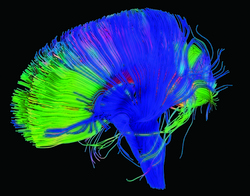
"You could do better if you just applied yourself."
"You're smart. What's the problem?"
"You're sloppy."
How many times can a kid hear this and recover from the humiliation? They can't. They don't.
So, what is going on? Parents tells me their kids are smart, but "something" is going on.
We adults have choices. Kids have no choice. They have to go to school and usually, it is a public school. More and more children are being homeschooled and many are attending private schools because public education systems are overwhelmed. For most children, there's no escape. Let me just say here that I've seen multiple incidences of the public school version of posttraumatic stress syndrome.
The neurological processes related to managing cognitive and emotional resources are designed to work in conjunction with one another in order to achieve a specific goal or purpose. Instead of listing the specific skills involved, this group is generally referred to as executive functioning . Clear as mud? Let's drill down on this and give some examples.
The competencies described below are Cognitive Executive Functioning skills:
1. Memory-both immediate and long term.
Example: Kids who study for a test and forget the material before the test is put in front of them. They're subsequently accused of not preparing.
2. Self- and task monitoring.
Example: While kids are working through a long division problem or an essay, they continue to "check in" with themselves to make sure they are paying attention to the process. Task monitoring is more global and speaks to the assignment as a whole. Students are required to take the assignment from beginning to end, its "life cycle" so to speak.
3. Organizing materials and planning and organizing.
Example: Kids who don't seem to have the right materials "at the ready" even when you provide them and who engage in "getting ready to get ready" behaviors are crippled when doing homework or tasks in school. Kids who underestimate (they rarely overestimate) the amount of time a task will take and the steps and the sequence of those steps necessary to complete the assignment fall behind frequently. They're the kids with the fat "fix and finish" file at the end of the day and may even be held back from recess (NO!!) to complete their work.
4. Initiating (starting) tasks.
Example: Kids spend an excessive amount of time moving about and collecting their materials and appear to now be prepared to work and sit down and you catch them staring out into space or drawing or playing video games or whatever. Because they don't get started without you sitting next to them, they never finish. When you sit next to them, they "rent" your neurology and are able to work as long as you are there. Also, it can be the case that students lack the foundational skills necessary to begin a task. If they don't have adequate reading comprehension skills, they won't be able to start the book report.

1. Inhibit unacceptable behavior.
Example: You and your 10-year old bump into his class' room mom and he says, "My mom says you are a terrible room mom". These are the kids who just blurt out anything and everything that's on their mind. It's the "on the mind, out the mouth" dynamic whereby they don't stop and consider the consequences of their behavior, the context of the behavior and their role in the interaction.
2. Shifting from one cognitive task to another or from one setting to another.
Example: These kids find it difficult to stop working in the middle of a task and take up another one, to solve problems using a variety of strategies and to change their emotional state while moving from setting to setting. This kind of child finds it challenging to "reduce" their energy while moving from the playground back to the classroom setting and to respond to the changing priorities in the dynamic classroom.
3. Emotional Control.
Example: This child may erupt quickly or respond with intense disappointment or sadness. They have difficulty "recovering" from intense emotional expression. These children end up being rejected or neglected by their peer group because they are confusing to other children and generally, "are a lot of work" for teachers who find themselves constantly mediating to reduce stress and explaining emotional responses to other children or the child him/herself. These children are exhausted and exhausting by the end of the day. They appear to misperceive the social intentions of others and are off-target in their response to social situations.
Students and adults with deficits in these areas frequently do not perform at a level that is consistent with their intellectual ability, hence, executive functioning deficits "subtract from their IQ". Frustration, confusion, shame and anxiety result which further compromise their performance.
Executive functioning skills can be both taught to students and accommodated in the educational and work settings. Regardless, it is a long road to both learn and practice to mastery the dynamics outlined above.
Now that you know...just do your best.
TTFN, Claudia



